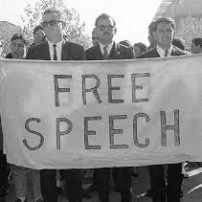
A court decision ordered the media to withdraw articles against a state body. Violation of the right freedom of expression
JUDGMENT
OOO Memo v. Russia 15.03.2022 (app. no. 2840/10)
SUMMARY
The case concerned a civil defamation suit brought by the Volgograd Region Authority against a
media company which OOO Memo owned.
The Court found in particular that although civil defamation proceedings were open to private or
public companies to protect their reputation in the marketplace, this could not be the case for a
large, taxpayer-funded, executive body like the plaintiff in this case. The proceedings and the
consequent interference had therefore not had a “legitimate aim” under the Convention.
PROVISION
Article 10
PRINCIPAL FACTS
The applicant, OOO Memo, is a Russian company. It is the owner of Kavkazskiy Uzel (Кавказский
узел – “The Knot of the Caucasus”), a registered online media outlet which is devoted to the political
and human-rights situation in the south of Russia, including Volgograd Region.
In July 2008 Kavkazskiy Uzel published an article in the context of the suspension of the transfer of
5,294,000 Russian roubles in subsidies from Volgograd Region to Volgograd City. It was entitled “[Mr
S]: the Mayor’s Office of Volgograd fell out with the Volgograd Region Authority over a bus factory”.
In October Volgograd Region commenced civil defamation proceedings against the applicant
company and the editorial board of Kavkazskiy Uzel, seeking a retraction of the following
statements:
(a) “… there are two main reasons for the financial conflict that stemmed from the order of the
Volgograd Region Authority to suspend allocation of subsidies from the regional budget to the City
of Volgograd. … Undoubtedly, the first reason is a political one. It is linked to the [results] of the
regional elections [of 2 March 2008]. The second reason is not widely known. It is of a purely
economic character.”
(b) “Recently the Mayor’s Office held an open call for tender to buy buses … Volgograd Region
lobbied on behalf of Volzhanin’s to help it win the tender, but it was won by another company.”
(c) “The officials of the Authority heavily criticised the Mayor’s Office, saying, ‘How come you did not
support the local producer!’ It appears to me that the Mayor’s Office’s refusal to do business with
the Volzhanin factory was one of the main reasons of the regional officials’ anger.”
(d) “… the suspension of allocation of subsidies to the City of Volgograd from the regional budget
was an act of revenge for the lost call for tender.”
The applicant company argued that the excerpts had been value judgments and that the plaintiff – a
public body – should, in any case, expect a higher degree of criticism than a private individual. The
first-instance court disagreed, holding that the statements were false and tarnished the Volgograd
Region Authority’s reputation, and ordering that a retraction to that effect be published, with the
operative part of the judgment being published on the company’s website. That judgment and the
reasoning were upheld by the Moscow City Court on appeal.
A number of other applications are pending before the Court concerning civil defamation
proceedings taken by State authorities in Russia.
Relying on Article 10 (freedom of expression), the applicant company complained of an interference
with its right to freedom of expression.
THE DECISION OF THE COURT…
Article 10
The Court was satisfied that the Volgograd Region Authority – which had legal personality – had
been entitled under the law to institute civil defamation proceedings.
Concerning whether the interference with the applicant company’s right to free speech had pursued
a “legitimate aim”, the Court firstly noted that the Volgograd Region Authority is the executive
authority of a constituent entity of the Russian Federation. For the Government, the legitimate aim
had been “the protection of the reputation and rights of others”. The applicant company argued that
such an authority could not claim to have a “business reputation”.
Although protection of reputation was a right under Article 8 (right to respect for private and family
life), the Court noted that an attack on reputation had to be serious enough to warrant protection
under that Article. The Court pointed out that protection of a company’s reputation – in the
interests of shareholders, employees, and the economy – had also found protection in the Court’s
case-law.
Regarding public bodies, the Court highlighted that it had found that only in exceptional
circumstances could a measure proscribing statements criticising the acts or omissions of an elected
body be justified. State executive bodies were essentially different from State-owned companies or
other legal entities, as the latter had to compete in the marketplace. Reputation was consequently
important for them to attract and retain customers. Executive authorities, on the other hand, were
funded by taxpayers. The Court reiterated that allowing State executive bodies to bring defamation
proceedings against the media placed a disproportionate burden on the media.
In the current case, the Court held that there could not have been an interest in protecting the
Volgograd Region Authority’s commercial success which would have potentially justified the legal
action; nor were the employees of the organisation harmed by the allegations. The defamation
proceedings had thus not pursued a legitimate aim, leading to a violation of Article 10 of the
Convention.
Just satisfaction (Article 41)
The applicant company did not make any claims for just satisfaction.
Separate opinion
Judges Ravarani, Serghides and Lobov expressed a joint concurring opinion, which is annexed to the
judgment.


